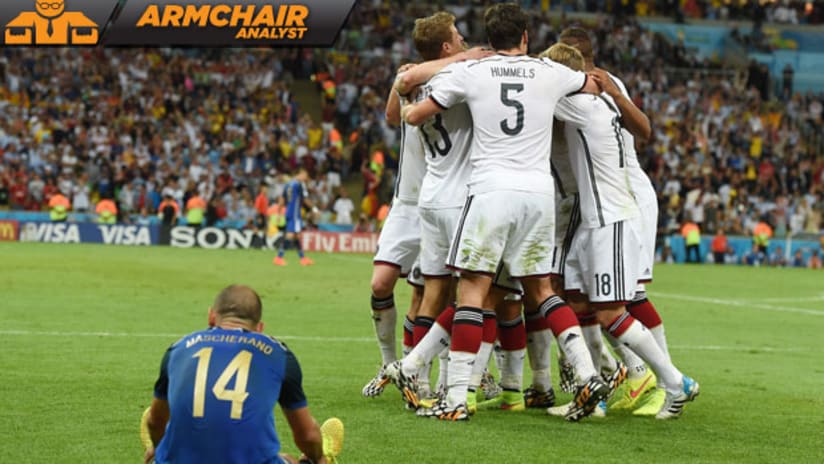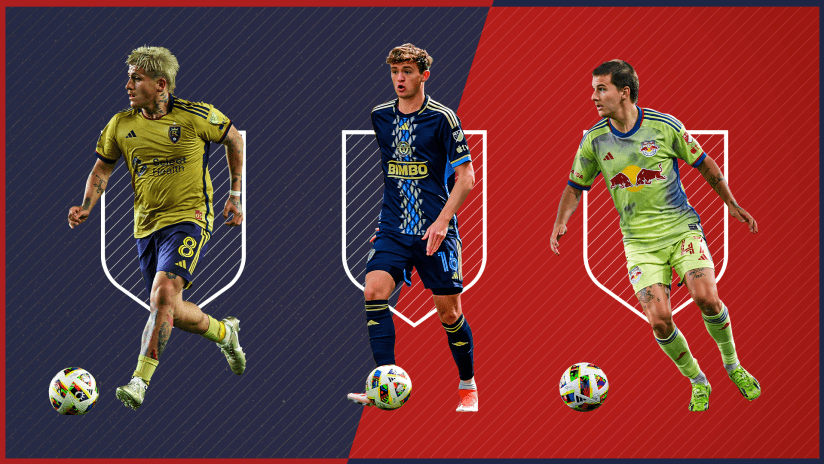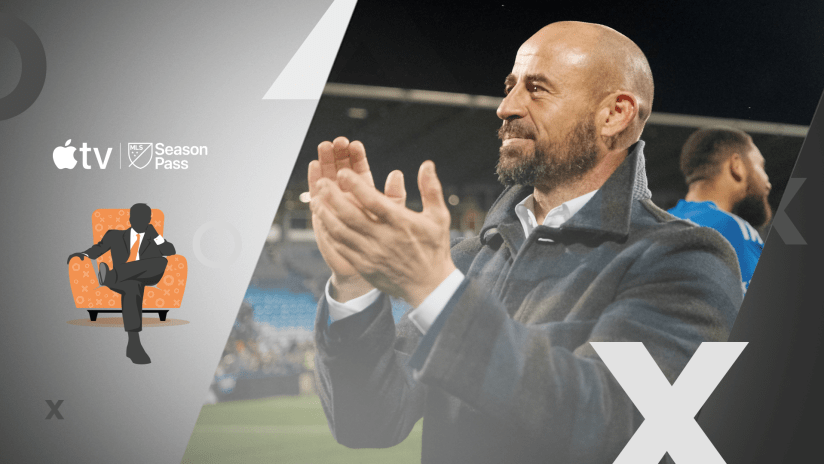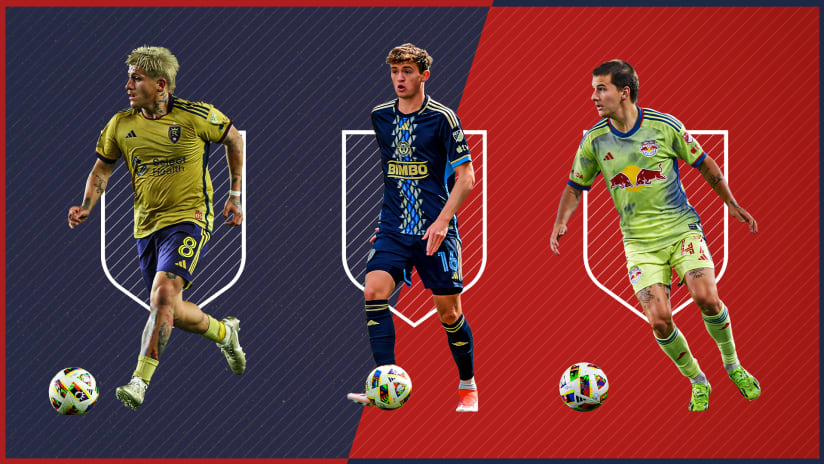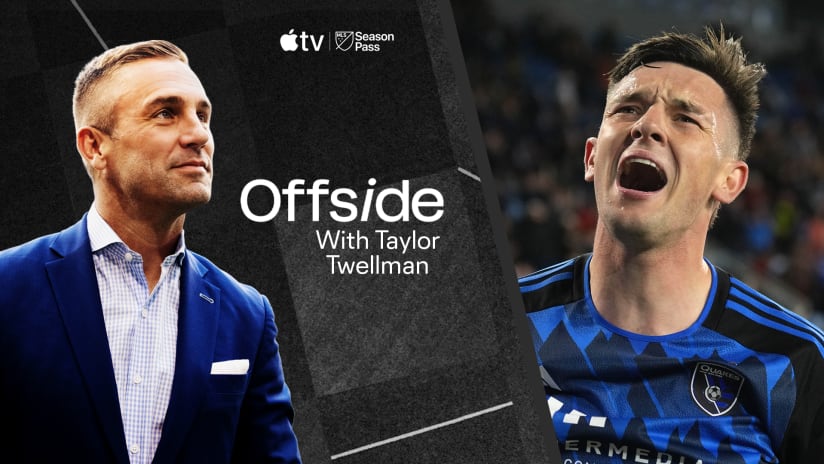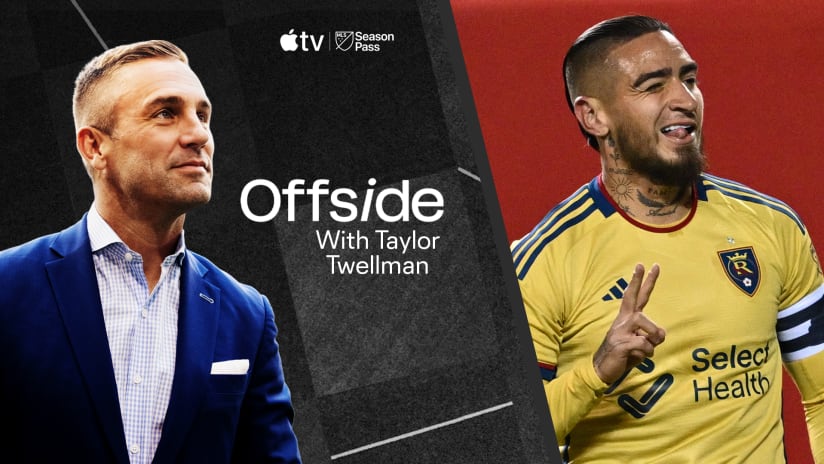Talking about narratives is a narrative in and of itself, so I'm going to try not to do it so much here. But there are two I have to address in the wake of Germany's 1-0 win over Argentina in the World Cup final.
First, Lionel Messi did not need a World Cup win to be considered one of the greatest players in the game's history. He's already there - just like Di Stefano, Cruyff and a host of others. I'm personally willing to put him in the top three with Pele and Maradona - ahead of Beckenbauer and Zidane - but I understand folks who feel like he can't crack that company without the title (even if I disagree with them).
Second, this win does represent a massive cultural change for Germany. Folks new(ish) to soccer who watched them play over this last month, or even over the last six years, saw a team that attacks with small-ball cleverness and precision, one that is physical but not dirty, and one that is, if anything, maybe a tiny bit mentally fragile (come on, you know that would have been the story if Gonzalo Higuain had buried Toni Kroos's gift).
Germany of the 1980s and early 1990s were the opposite of all that. They were long-ball masters and physical butches who pounded other teams into submission athletically. They played ugly, dirty soccer, and they were everybody's least-favorite team.
It's hard to feel that way about this generation of Germans. They played beautiful soccer with only touches of cynicism - Thomas Muller is faking another injury even as I write this - and are clearly, clearly the best team in the world.
Here are a few other thoughts from the final:
1. Missing Key Chances
Games at the highest level are won or lost on the razor’s edge. There are a finite number of big, obvious chances – and big, obvious mistakes. Argentina had their chance with the Higuain shank, while Germany had theirs with the Benedikt Howedes header at the end of the first half. It’s remarkable that neither was a goal.
Messi himself had a chance taken directly from one of his highlight compilations, early in thes econd half when he finally got away from the German defense after showing a burst of acceleration that's been missing since 2012 - and yeah, if Barcelona are smart they'll shut him down until January or so. He's a step-and-a-half slower than he was 18 months ago.
Andre Schurrle had his chance in the 91st minute. Rodrigo Palacio had his chance in the 97th minute. And there were others in extra time as well.
That perfect finish was authored by Mario Gotze, and shows the potency of transition play in the modern game. For all of Germany's possession - they had nearly 64 percent of the ball - they were rarely turned on-the-ball dominance into danger. The same can obviously be said of Argentina, who were punchless the few times they were able to string passes together.
The other thing that goal illustrated is how dangerous floating attackers are in the modern game. Gotze is neither a winger nor a creator nor a forward nor a midfielder, he's just another German who finds space. And then it becomes incumbent upon the defenders to identify both him and the space he's headed to, and figure out how to best deny that space or close him down entirely.
Martin DeMichelis and Ezequiel Garay, after anchoring nearly 500 scoreless minutes, had one slip-up. Gotze punished them, and with that this World Cup was less about everyone missing key chances and more about the one player who could finish his.
2. Lahm’s Positioning & Muller's Role
Once Philip Lahm moved from central midfield to right back, Germany’s form changed in this tournament. He provides them not just a legit attacking overlapping fullback, but an extra staging point for those strings of possession that the Germans have used to repeatedly wear down the opposition. If you're chasing for 90 minutes (or 120), you become mentally and physically fatigued. If you become mentally and physically fatigued, you will eventually make a mistake.
Credit to Argentine left back Marcos Rojo, who tried to compensate by coming out higher and farther to meet Lahm after a first six or seven minutes spent in desperation defense. More credit to Joachim Loew, who countered by pulling Muller out wider almost like an old-style winger, making him more a provider rather than a finisher.
Here's how Muller's attacking positioning changed as Argentina's defense changed shape:
vs. Argentina
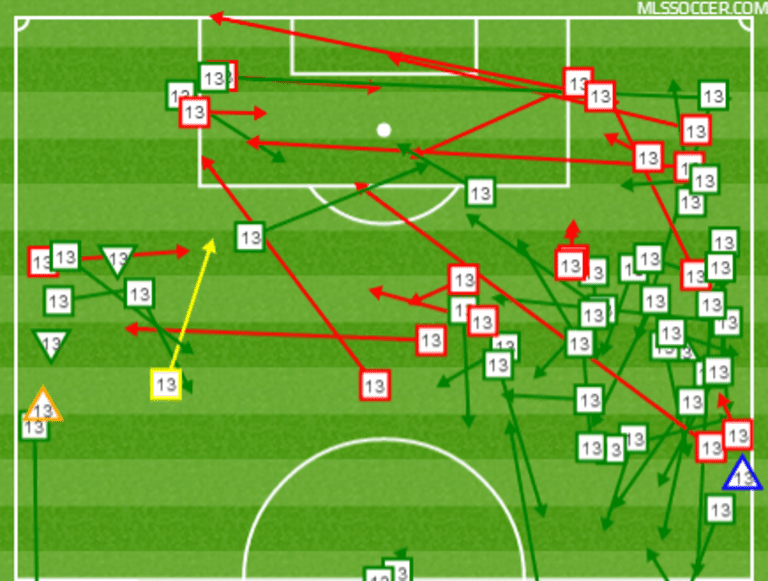
vs. France
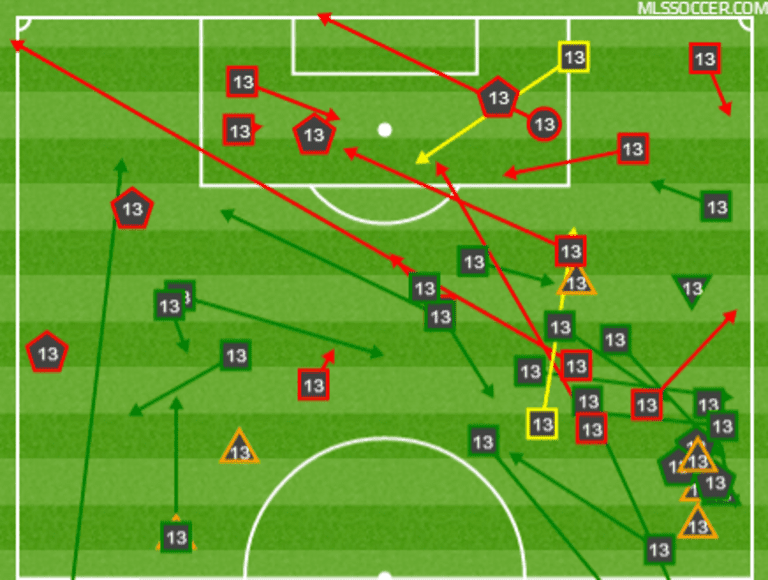
Muller's not a guy you usually run the attack through since he's better off the ball than on it. But when that's all you're given - again, Argentina's defense was disciplined and masterful - it's nice to have an option like that.
Even if it never quite came off, those adjustments to adjustments to adjustments are what let Germany control this game and play it largely on their own terms. They weren't going to counterpunch or long-ball their way to a title; they were going to play beautiful, attacking soccer.
Lahm's presence at right back was the key for that.
3. Loew’s Big Gamble
With Sami Khedira and then Christophe Kramer out (don’t get me started on how disgusting FIFA’s unwillingness to institute/enforce concussion protocols is), Loew chose to put on another attacker – Schurrle – and drop Mesut Ozil into a pure midfield role rather than his creator role. It made Germany more dangerous, but it also made Argentina more dangerous, since playing against Messi without a d-mid is nuts. That’s why this was such an open and entertaining final for huge swathes of time, even if the goals weren't there.
Of course, it didn't happen for Leo and the rest of his attacking compatriots. Angel Di Maria was sorely missed, and while Sergio Aguero had a few moments of strength, he - like Messi - seemed to lack that explosion, that extra burst to pull him into space, that has made him virtually unplayable even by elite teams.
Regardless, Loew bucked conventional wisdom and maybe even his own inclinations with the move. Most managers would have veered toward the defensive substitution when Kramer came out, bringing on Per Mertesacker for central defense, moving Jerome Boateng out to right back, and bringing Lahm back into midfield.
Loew didn't do that. And above everything else, I'll remember this World Cup final as the one where the manager who made attacking choices walked away with the trophy.
A few final thoughts...
5. Alejandro Sabella didn't make attacking choices. He brought Aguero on at the expense of Ezequiel Lavezzi, who had terrorized Germany with his speed in the first 45. Even if his final ball is... ahem... "inconsistent," he was still a game-changing presence.
Partially that's because of his speed. The other part is that Lavezzi is the only Argentine who doesn't defer to Messi - you have to actually play him straight up, and bring other defenders out to help. That opens lanes for other attackers. Those lanes pretty much disappeared as the game wore on.
4. Javier Mascherano deserved better. He was immense - the second-best player on the field, and my vote for the Golden Ball (best player at the tournament).
3. Jerome Boateng deserved exactly what he got. He was the best player on the field in a World Cup final, and will be hailed as a hero in Germany. It seemed like every time Argentina created danger late in this one, he was on hand to snuff it out - and he absolutely carried Mats Hummels for about the last 50 minutes.
2. Messi didn't deserve the Golden Ball. He was great throughout the tournament, making game-defining plays in four of the first five games, as well as a handful of plays throughout both the semifinals and final that could, or maybe should, have been game-defining.
But it was Mascherano who deserved the nod. If not him, then probably Muller or even Lahm.
1. Every time a World Cup happens, we get a lot of "they should have this thing more often!"
I'm not in that camp. I am emotionally wrung out after the last month, and four years seems like plenty of time between now and the next one. And by then we can see if Sepp ever gets that kiss:

